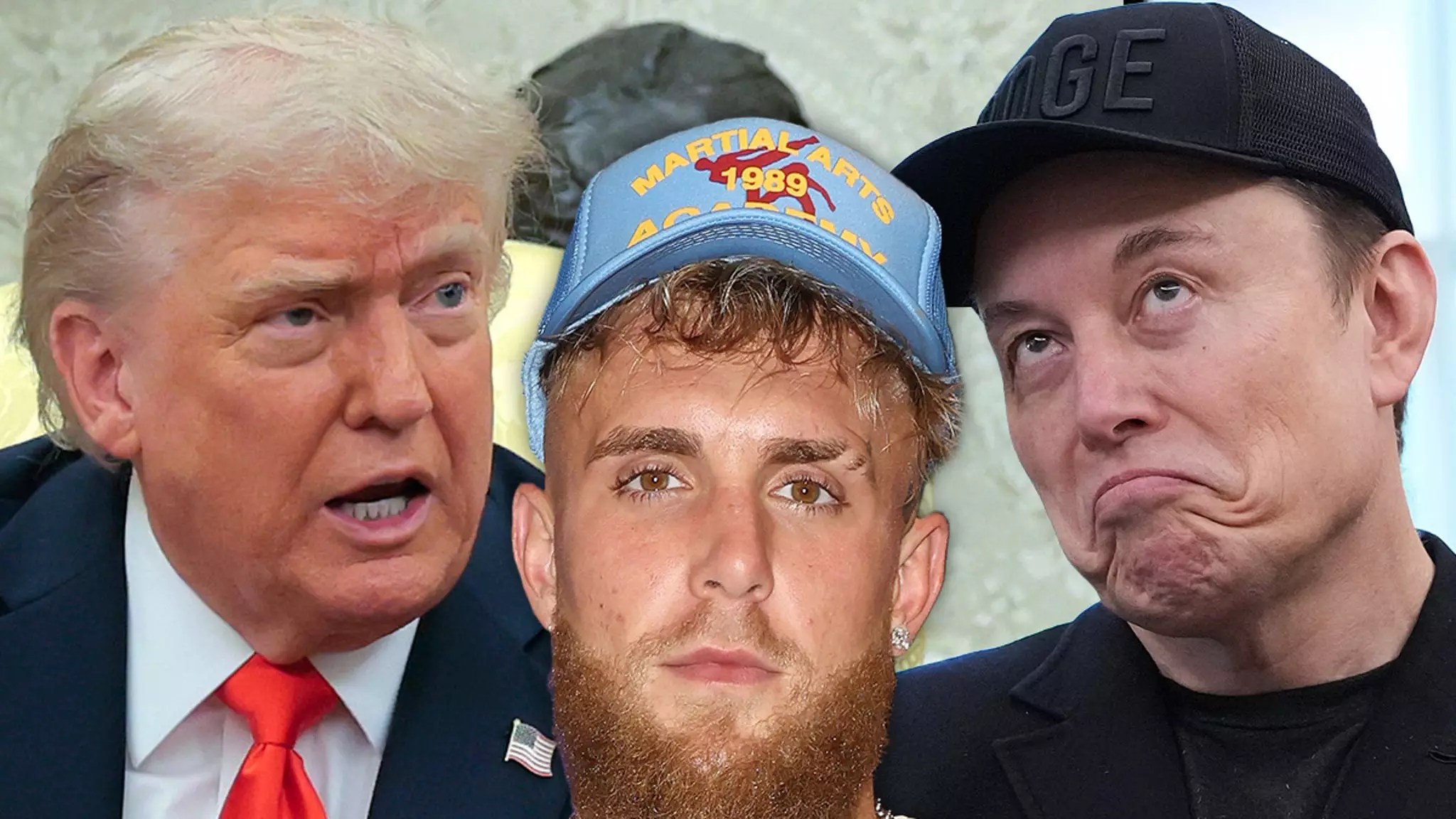In recent months, the friendly camaraderie between former President Donald Trump and tech mogul Elon Musk has deteriorated into a public feud that has captured the attention of not just their respective followers, but the entire nation. This unexpected rift raises questions about the behavior and maturity of influential figures who hold sway over American politics and culture. Prominent personalities such as Jake Paul, a popular social media influencer and a registered Republican, have weighed in, expressing concerns that this fallout is detrimental to the image of the Republican Party and the country at large.
Paul’s commentary on the situation goes beyond mere fanfare; it reflects a discontent with how two of the most powerful men in America—both in their fifties and sixties—are publicly engaging in petty squabbles through social media. They are supposed to embody leadership, yet their behavior seems more reminiscent of schoolyard disagreements. As Paul put it, “We unfortunately have these Alpha male egos and leaders who aren’t mature enough sometimes.” Such sentiments underline a growing disillusionment with the expectations we place on our leaders.
The Influence of Social Media on Public Figures
The rapidity with which Trump and Musk’s relationship has soured demonstrates the volatile nature of social media as a platform for communication. Public figures that once stood united can easily become adversaries due to the same medium that initially brought them together. Musk’s remarks about Trump veering into discussions about the “Big Beautiful Bill” and the former president’s controversial ties to scandalous allegations show how personal grievances can overshadow the larger political picture.
Additionally, Jake Paul’s decision to endorse Trump prior to the 2020 election showcased the intersection between entertainment, politics, and public influence. With a following of millions, he has leveraged his platform to sway his audience—at least partially—toward political activism. Yet, his role as a mouthpiece raises ethical questions about the responsibilities of influencers. Should they offer political endorsement, and if so, how should they navigate the complexities of involvement in political discourse?
Echoes in the Political Landscape
The rift between these titans extends beyond personality conflicts; it speaks to a fragmented political landscape where personal relationships increasingly dictate public perceptions. Musk’s incendiary comments about Trump indicate a deeper schism that could affect both men’s standing and perceivable leadership within the Republican Party. As figures in contemporary politics navigate these intricate relationships, it becomes apparent that ideologies often take a backseat to personal vendettas.
In a nation that often finds itself divided, these high-profile feuds showcase a troubling trend where personal ego and reputation can undermine national discourse. While Paul highlights the importance of collaboration and unity, Musk’s recent actions could further alienate those who have historically supported Trump. With cooler heads hoping to prevail, the emerging narrative raises an essential question: In an era defined by social media, will personal character continue to shape political destiny?







Leave a Reply